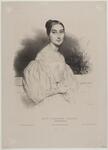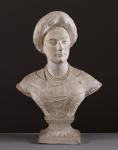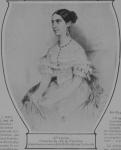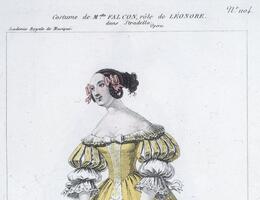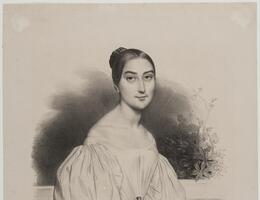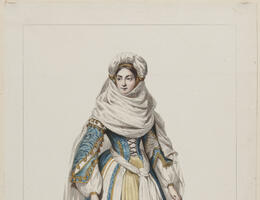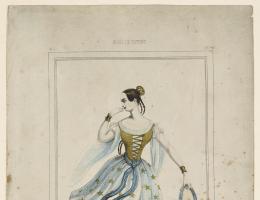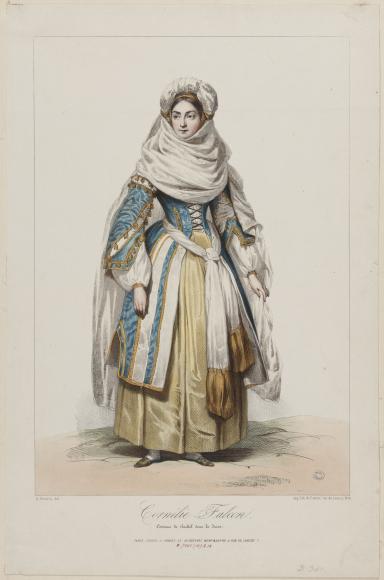
Cornélie FALCON
1814 - 1897
Soprano
After enrolling in the Paris Conservatoire in 1827, Marie-Cornélie Falcon did outstandingly well, obtaining a Premier Prix in vocalisation in the class taught by Henry (1830), a Premier Prix in singing in the class taught by Pellegrini, as well as a prize in lyric declamation while studying under Adolphe Nourrit (1831). She made her debut at the Paris Opéra on 20 February 1832 in the role of Alice in Robert le diable, compelling recognition as much for her physical and vocal beauty as for her dramatic and musical intelligence. Cornélie Falcon became one of the three leading singers of the time at the Paris Opéra, alongside Laure Cinti-Damoreau and Julie Dorus-Gras. During her short career, she successfully repeated the roles of Julia in Spontini’s La Vestale, Mathilde in Guillaume Tell and the Comtesse in Le Comte Ory by Rossini. In addition to these roles, she created Amélie in Auber’s Gustave III (1832) and Donna Anna in Mozart’s Don Giovanni in the French version by Émile Deschamps and Castil-Blaze (1834). However, her two biggest creations were Rachel in La Juive (1835) and Valentine in Les Huguenots (1836), which were written specifically for her voice by Halévy and Meyerbeer. Her career was brought to a sudden halt on 6 March 1837. During the second performance of Stradella by Niedermeyer, she lost her voice on stage and had to be replaced by an understudy. This vocal ailment soon became chronic. After a stay in Italy in the hope of recovering her voice (1838), she gave a benefit concert at the Paris Opéra on 14 March 1840 which was a resounding failure. It marked the end of the career of a French soprano who was so fashionable in her day that she gave her name to a vocal emploi (role) still in use today.


